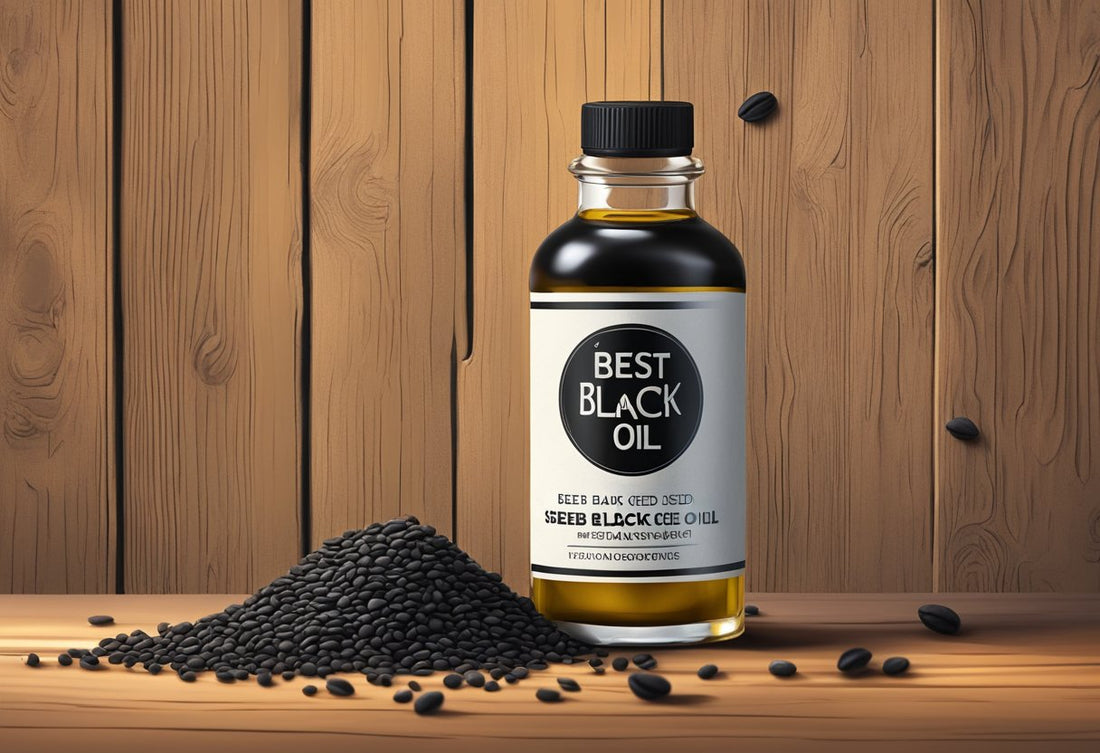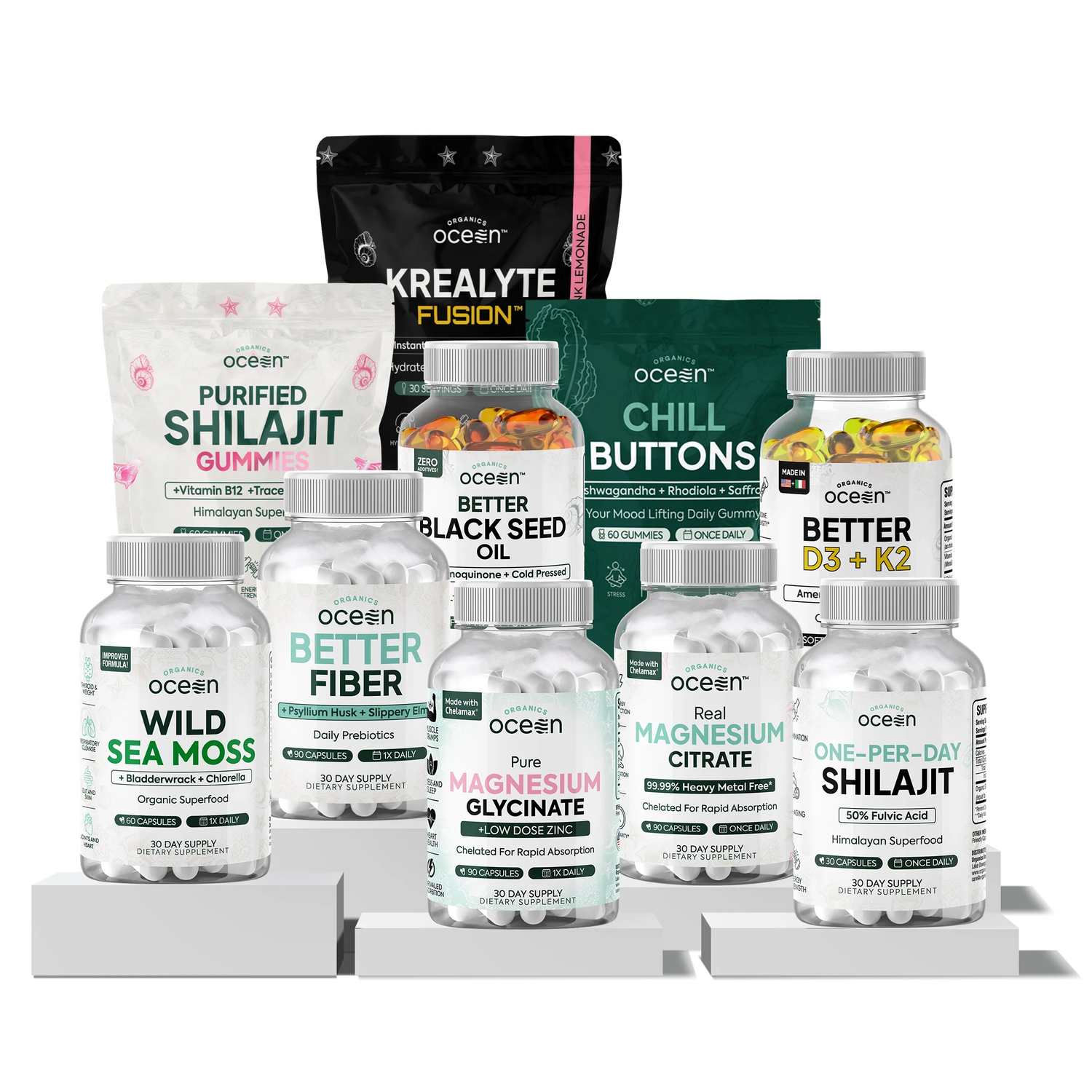
Best Black Seed Oil: A Comprehensive Guide to Benefits and Uses
Share
Black seed oil, derived from the seeds of the Nigella sativa plant, has gained popularity for its numerous health benefits. The best black seed oil is typically cold-pressed and organic, ensuring you receive maximum potency and purity. Whether you are looking to enhance your immune system, improve skin health, or support digestion, this ancient remedy could be the answer you need.
As you explore the options available, consider the factors that contribute to the effectiveness of black seed oil. Organic black seed oil offers a higher concentration of beneficial compounds, making it a superior choice for achieving your wellness goals. You’ll discover that many brands highlight their unique extraction methods and thymoquinone content, which plays a crucial role in the oil's effectiveness.
In this comprehensive guide, we will delve into the best options on the market, helping you make an informed decision for your health. Get ready to unlock the potential of this powerful supplement and learn how to incorporate it into your daily routine.
Understanding Black Seed Oil
Black seed oil, derived from the seeds of the Nigella sativa plant, offers a range of health benefits due to its unique composition. This oil is known for its anti-inflammatory and antioxidant properties, thanks to compounds such as thymoquinone and nigellone. Understanding its origins and extraction methods will help you choose the best product for your needs.
Origins and Composition
The origin of black seed oil lies in the Nigella sativa plant, commonly known as black cumin. This plant is native to Southwest Asia and has been used for centuries in various traditional medicines.
The oil is extracted from the tiny black seeds, which are packed with active compounds. The key constituents include thymoquinone, a powerful antioxidant, and nigellone, known for its anti-inflammatory effects.
Black seed oil is also rich in essential fatty acids, which play an important role in maintaining overall health. The highest quality oils are extracted using cold-pressed methods, ensuring that the beneficial compounds remain intact. Look for oils that are labeled USDA organic, unrefined, and non-GMO for optimal quality.
Types and Extraction Methods
When selecting black seed oil, consider the extraction method, as it affects the oil's potency. The most common methods are cold-pressing and CO2 extraction.
Cold-pressed black seed oil retains more of the natural nutrients and flavor, making it a preferred choice. This method involves mechanically pressing the seeds without heat, preserving the oil's integrity.
CO2 extraction is another effective method, yielding a high concentration of thymoquinone content. This technique uses carbon dioxide under pressure to extract the oil, ensuring purity while maintaining the active compounds.
Regardless of the extraction method, always check that the oil comes from a certified facility. This ensures that the product has been processed under stringent quality standards, maximizing its health benefits.
Health Benefits and Uses
Black seed oil is rich in beneficial compounds that support various aspects of health and skincare. Its properties make it a versatile supplement that addresses numerous conditions and promotes overall well-being.
Therapeutic Properties
Black seed oil is known for its antioxidant and anti-inflammatory properties. These qualities can help protect your cells from damage and reduce inflammation throughout the body.
The oil supports digestive health by promoting gut function, which can contribute to improved nutrient absorption.
Additionally, it bolsters your immune system, enhancing your body's ability to fight off infections.
Regular use may also provide relief from respiratory health challenges, making it beneficial for those with asthma or allergies.
Overall, these therapeutic benefits position black seed oil as a valuable addition to your health regimen.
Skin and Hair Care
When it comes to skin health, black seed oil shines. It is effective for addressing various skin conditions such as acne, psoriasis, and eczema. Its anti-inflammatory properties can help to soothe irritated skin and reduce redness.
Incorporating black seed oil into your skincare routine can improve hydration and elasticity, leading to healthier skin.
For your hair, this oil can help with scalp health, preventing dryness and flakiness. It strengthens hair strands and may promote growth by nourishing the scalp, making it a popular choice in hair care formulations.
This dual action makes it a potent choice for both skin and hair care.
Specific Health Conditions
Black seed oil has been linked to managing several specific health conditions effectively. For those dealing with high blood pressure, studies suggest it may aid in lowering levels, contributing to cardiovascular health.
In terms of weight management, the oil could support metabolism, which may assist those working toward weight loss goals.
If you are confronting diabetes, the oil may help regulate blood sugar levels, providing a natural method to support glycemic control.
Moreover, its anti-inflammatory properties can provide relief for joint health, making it useful for individuals with arthritis or chronic pain issues.
This oil stands out as a natural ally in managing various health challenges.
Choosing Quality Black Seed Oil
Selecting high-quality black seed oil is crucial for maximizing its health benefits. You should focus on specific attributes like certifications, labeling, and what to avoid in inferior products.
Labels and Certifications
When choosing black seed oil, look for reputable brands that clearly state their certifications. A USDA Organic certification ensures the oil is derived from non-GMO seeds and is produced without harmful pesticides.
Check for third-party testing results, which confirm the purity and quality of the product. This testing can provide assurance that the oil is free from contaminants and additives.
Also, opt for oils labeled as filler-free, soy-free, and dairy-free. These labels indicate that the product does not contain unnecessary additives that can dilute its potency. If you prefer vegan options, ensure the capsules are not derived from animal sources.
What to Avoid
Be cautious of products that lack transparency regarding their sourcing and ingredients. Oils that do not disclose the origin of their black seeds may be of lower quality. Avoid brands that use vague terms like "natural" without concrete certifications.
Steer clear of oils with preservatives or additives. Look for terms like preservative-free and additive-free on labels, as these indicate higher purity. Additionally, avoid oils that contain fillers or are marketed without solid evidence of their health claims. This can often suggest lower-quality extraction methods or ingredients.
Dosage and Consumption

When considering black seed oil, understanding the appropriate dosage and methods of consumption is essential to maximize its benefits and ensure safety. This section outlines the recommended dosages and various ways you can incorporate black seed oil into your routine.
Recommended Dosages
The ideal dosage of black seed oil can vary based on personal health goals and individual factors. Generally, a common recommendation for adults is 1 to 2 teaspoons (approximately 5 to 10 mL) daily. For those using black seed capsules, a typical dosage is 520 mg daily.
It's also important to follow the specific instructions on the packaging. For individuals looking to address specific health concerns, consulting with a healthcare professional can provide guidance tailored to your personal situation.
Methods of Ingestion
You can incorporate black seed oil into your routine in several ways. One popular method is to mix it with honey and lemon juice, which can enhance its flavor and increase its health benefits. This combination can be taken in the morning for an invigorating start to your day.
Another option is to use black seed oil for topical applications. It can be applied directly to skin irritations or used as a massage oil to relieve discomfort. If you prefer convenience, consider options like Better Black Seed Oil for easy ingestion.
Overall, the method of consumption largely depends on your personal preferences and health needs.
Frequently Asked Questions

This section addresses common inquiries regarding black seed oil, focusing on its benefits, quality indicators, and considerations for use. The following questions cover various aspects of black seed oil, including its effects on weight loss, Thymoquinone concentration, brand recommendations, and potential side effects.
What are the benefits of taking black seed oil for weight loss?
Black seed oil may aid weight loss by improving metabolic functions and enhancing feelings of fullness. Some studies suggest that its anti-inflammatory properties can also assist in reducing fat accumulation.
How does the concentration of Thymoquinone affect the quality of black seed oil?
Thymoquinone is a key active compound in black seed oil known for its therapeutic effects. A higher concentration of Thymoquinone typically indicates a higher quality oil, as it is associated with more pronounced health benefits.
What should I consider when choosing black seed oil capsules?
When selecting black seed oil capsules, consider factors like Thymoquinone concentration, extraction methods, and the source of the seeds. Look for products that are organic and have undergone third-party testing for quality assurance.
Can black seed oil improve hair health, and how should it be applied?
Yes, black seed oil can promote hair health by moisturizing the scalp and strengthening hair follicles. For optimal results, apply it directly to the scalp and hair, massaging gently before leaving it on for a period prior to washing.
Are there any potential side effects to be aware of when using black seed oil?
While generally safe for most individuals, some may experience mild side effects like digestive upset or allergic reactions. It's advisable to consult with a healthcare provider before starting any new supplement, especially if you have underlying health conditions.
